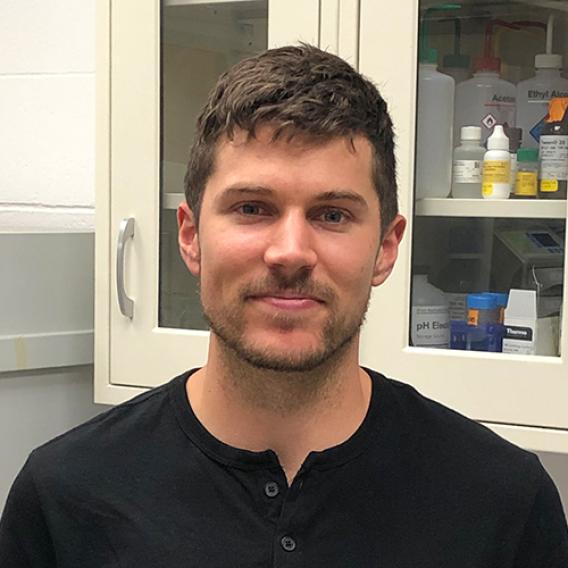Emphasis: Exercise physiology
Exercise physiology is the study of issues related to acute and chronic effects of physical activity on human physiological systems and health. Additionally, this emphasis area focuses on how fundamental concepts of human energetics and mechanics apply to exercise, sport, physical exertion, and health promotion.
Students will examine the role of physical activity and exercise in promoting optimal health/wellness and preventing and managing cardiovascular diseases, diabetes mellitus, injury, obesity, osteoporosis, and other common medical conditions. Students will learn to apply principles of physiology to solve problems related to functional responses and adaptations involved in human skeletal muscular activity.
This emphasis area has strong interdisciplinary ties with many academic programs across campus:
- medicine
- nursing
- physical therapy
- public health
- epidemiology
- physiology
- nutrition
- psychology
Associated labs and faculty
- Laboratory of Integrative Human Physiology, directed by Donald Dengel, PhD
- Skeletal Muscle Plasticity and Regeneration Laboratory, directed by Sarah Greising, PhD
- Integrative Cardiovascular and Exercise Physiology Laboratory, directed by Daniel Craighead, PhD
About our students
Quote from Daniel Hoffman

When I first started out I wasn’t really sure what options were going to be available to me after I graduated. I knew I needed more than a BS to stay in this field, but I wasn’t sure where I wanted to go. The skills I’ve learned in the Skeletal Muscle Plasticity and Regeneration Laboratory can be applied to many different career paths and I feel like I’ve learned so much from that experience alone.
How to apply: MS or PhD
Before you apply
Before you apply review the MS vs MEd information. All master's programs are designed to educate students in their chosen degree path and prepare them for professional or academic work. Read through the MS versus MEd comparison page to decide which program is the best fit for you.
It is highly recommended that applicants contact the professor they are interested in working with before applying online. It helps facilitate the application process and familiarizes the professor with applicants and their interests.
Apply
All required materials need to be submitted by the application deadline, December 1.
Applications received by December 1 will be given priority consideration for admission and financial support. The majority of applications are reviewed in January for admission for the following fall semester. A few applicants with exceptional credentials or exceptional situations may be considered for admission outside this review period or for semesters other than fall, but these are rare and are subject to faculty advisor availability.
Graduate school application requirements
You will apply online through the University of Minnesota Graduate School.
- Graduate application instructions
- Admission requirements
School of Kinesiology application requirements
Applications must be completed online and the fee ($75 for permanent U.S. residents, $95 for international students) paid by credit card. The School of Kinesiology requires applicants to:
- Complete an online application
- Upload a personal statement
- Upload a research description
- Upload copies of unofficial transcripts
- Upload one (1) scholarly writing sample
- Upload three (3) letters of recommendation
- Graduate assistantship application (if interested): Assistantships in the department are competitive and the number of assistantships given each year is limited. Chances for getting an assistantship vary from year to year depending on availability and funding. Applicants must not assume that they will be awarded an assistantship automatically if they are accepted into the program. Admitted students should contact their future faculty advisor directly for more information.
Starting with the 2024-25 admissions cycle, GRE scores will not be considered in the admissions review process for PhD or master's (MS) applications.
All School of Kinesiology application materials are uploaded to the online application system and must be submitted by December 1 for the following fall semester.
Application process and timeline
An admission decision notice will be emailed to you once your application is carefully reviewed by the School’s admission committee and your unofficial transcripts and any credentials (test reports, diploma copies, etc.) are authenticated by University officials.
Applicants who apply by the due date (December 1) should receive an admissions decision in January or February. Assistantship applicants will find out if they received an assistantship no later than mid-April.
Review process
Faculty with expertise in the emphasis areas identified by the applicants will review the MS and PhD applications. Based on the comments and recommendations of the faculty, the director of graduate studies makes the final recommendations to the Graduate School, which informs students of the School's decision.
Meeting minimum admission requirements does not guarantee admission. In making admission decisions, faculty reviewers and the director of graduate studies consider level of achievement in previous college work, performance on standardized graduate exams, experience, congruence of the program with an applicant's stated goals, advising and teaching load of faculty in the identified emphasis area, and academic records of other applicants for the same emphasis.
Potential MS or PhD students who have not received a response by late March, should contact the Graduate Program Coordinator.
Readmission requirements for MS and PhD students
- Contact the faculty advisor prior to the readmission application submission, and
- Contact the graduate program coordinator to request the paperwork for readmission.
Tuition and funding
Questions?
We’re here to help. Get in touch with our Graduate Studies Office.

